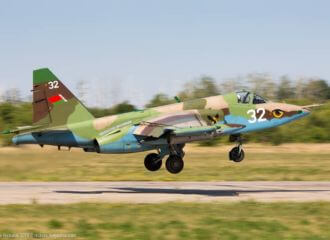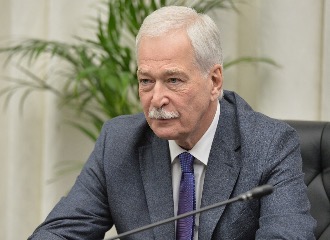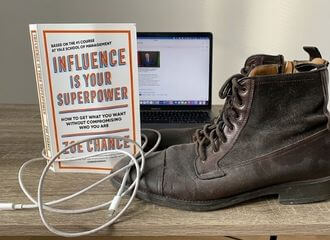На русском языке:
«Диктаторов нельзя перевоспитать». Светлана Тихановская выступила на Саммите за демократию
На беларускай мове:
«Дыктатараў нельга перавыхаваць». Святлана Ціханоўская выступіла на Саміце за дэмакратыю
Today, at the Summit for Democracy, organized by US President Joe Biden, Sviatlana Tsikhanouskaya made a speech. About 100 world leaders took part in the Summit, which was held online. Sviatlana Tsikhanouskaya as a representative of Belarusians spoke after Gitanas Nauseda, the President of Lithuania.
During the meeting, Tsikhanouskaya spoke about political repressions and prison sentences. In addition, she asked the international community questions that concern Belarusians – for example: «I don’t understand what is the difference between “very, deeply, strongly concerned” and “gravely, extremely, seriously concerned»?
The editors of motolko.help quote the speech of Sviatlana Tsikhanouskaya unchanged.
First of all, I want to thank President Biden for organizing this gathering.
President Nauseda,
Honorable heads of state, dear friends,
Allow me to say how I feel. Allow me to be myself.
I feel angry.
Thousands of my fellow citizens are in prison because they dared to speak up against a dictator.
It all started as a protest against rigged elections, but it became something much bigger. It became a struggle for dignity and justice. Belarusians had enough of the regime ruling the country for 27 years. They felt that they deserved to be respected and heard.
We continue to pay a big price. 40,000 people have been detained since last year. Many suffered endless interrogations at the hands of the KGB. Many were tortured and humiliated. You could see their forced confessions posted by the regime on YouTube. Many lost their lives. More than 300 thousand were forced to flee. And more than 900 have been recognized as political prisoners.
Among them is my husband Siarhei, who will likely be sentenced to 15 or 20 years imprisonment next week. It’s because of him I am here today. I feel awful that my children have not seen their father for 18 months.
And some mothers will never see their children again. Like Alena Bandarenka — the mother of artist Raman Bandarenka, who was murdered by the regime. Some children will never see their fathers again. Like Nastya – daughter of Aliaksandr Taraikouski – shot by the regime’s security forces while peacefully protesting the fraudulent elections.
Also, I feel confused.
I don’t understand What is the difference between “very, deeply, strongly concerned” and “gravely, extremely, seriously concerned»?
I still can’t understand how the group of thugs managed to terrorize the whole of Europe – with flight hijacking or migrant smuggling. How come these thugs still have not faced any significant consequences for their outrageous actions?
Recently, I heard from one foreign minister I’ve met: “We did everything we could, and nothing worked». There was frustration and fatigue in his voice. Unfortunately.
But Belarusians can't say: we did everything we could and nothing worked. We can not go home. Our home is taken from us. And until we get it back we will not stop.
Ladies and gentlemen, supporting democracy, supporting Belarusians, is a process, not a one-time action. The international community is much more powerful than it pretends to be. For the last 18 months, I have been trying to understand why the democracies of the world are so reluctant.
Taken together, they are the most powerful force in the world today. Their economies are vast, they have enormous wealth, expertise, and power, both soft and hard. And many brilliant, charismatic leaders. Many of them are here today.
Leaders that really could defeat dictatorships, if only they set their minds to it. If only they realised that the fight for our freedom is the fight for their own freedom, too.
I’m not an experienced politician. I am not naive either. And I truly believe in the power of international institutions and our democratic community. Perhaps I believe in them more than you do. But This belief comes from the bottom of my heart. The heart of a mother, a wife, but also a Belarusian who passionately desires her country and its people to be free.
Dear friends, let me put it in simple words. Imagine that your neighbor is an abuser. You can’t ignore him. But also you can not change his ways. So what can you do? You can try to appease him or try to satisfy his demands. But that will only make the abuser feel that he can control you. That he can manipulate you.
Because if you’re accommodating, you lose ground. 27 years of oppression taught us that appeasement never works. If you give him an inch he will take a mile.
Let me be clear: dictators can not be reeducated. On an individual level, when we see an abuser, we know what the right thing to do is: Send a collective message loud and clear that such behaviour will have punitive cOnsequences. This abusive neighbour is a problem for the whole neighborhood. Not only for the left or right side.
Why, then, does the world do so little when it comes to the abuse going on just across the border, in neighbouring Belarus?
And what hope is there for any of us if we cannot stand up together for our own values?
Ladies and gentlemen, I propose that we make next year a year of concerted action. The year that democracies push back and reclaim the initiative.
To topple dictatorships, we may not need a hurricane. It is not what we Belarusians are asking for. Just give us the right gust of wind from just the right direction at just the right moment. Because, as we now know, dictatorships seem all-powerful until suddenly they are not. They are trees that can grow tall and wide. But their roots are always shallow.
Dear ladies and gentlemen, I feel proud of my fellow Belarusians. Our struggle continues. Belarusians fight with dedication and pride. Despite terror and fear.
I also feel optimistic. We have a new quality of Belarus society. People are self-organized and determined. They don’t rely on someone anymore. They act themselves. They create structures that will become foundations of a new Belarus. They develop reforms, distribute self-published newspapers, fundraise to support those in need and each other.
We can shape the future of democratic Belarus now. And we rely on your help, but also your consistency.
Thank you and Жыве Беларусь!


